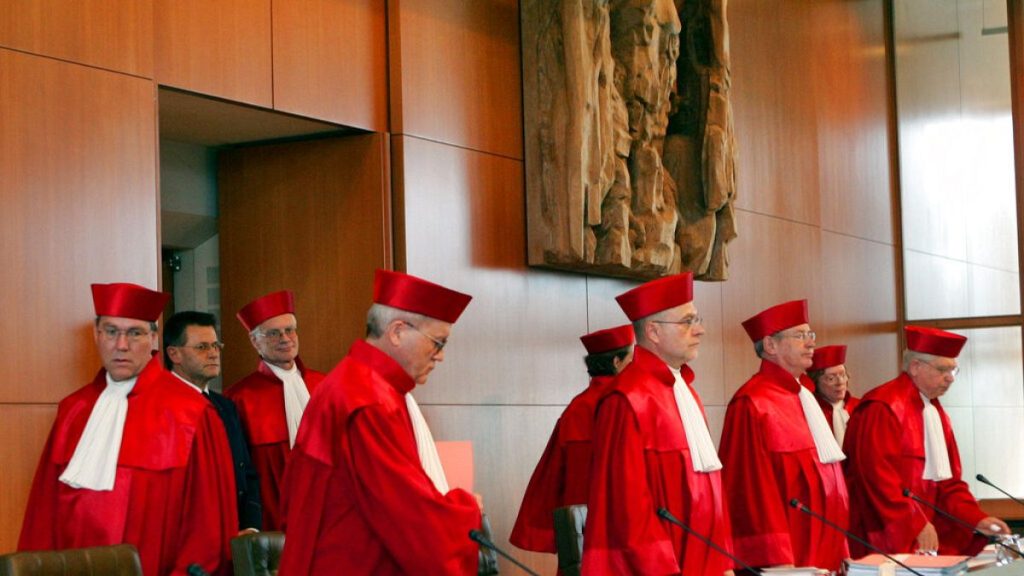The German government, along with the largest opposition party, the conservative CDU, have come together to draft a plan aimed at strengthening the independence of the Federal Constitutional Court in order to shield it from potential influence by extremist groups. The proposed legislation seeks to incorporate the court into the country’s constitution, impose an age limit of 68 years for judges, and limit their terms to twelve years. This move comes in response to concerns about the erosion of the rule of law in countries like Poland and Hungary, as well as the rise of the far-right Alternative for Germany (AfD) party, which has been gaining popularity in recent years.
Chancellor Olaf Scholz’s ruling coalition in Germany faces increasing unpopularity, with the AfD scoring lower than the CDU in the European elections but higher than each individual party in the coalition. The rise of the AfD has drawn comparisons to the nationalist conservative Law and Justice party in Poland, which sought to establish control over its Constitutional Tribunal after gaining power in 2015. The German government is wary of similar attempts to manipulate the Federal Constitutional Court and is taking preemptive measures to protect the court’s independence and integrity.
The German Federal Constitutional Court, based in the city of Karlsruhe, is widely respected for its role in overseeing bailout plans during the eurozone debt crisis and making important decisions on issues such as reducing greenhouse gas emissions and revising the budget. Half of the court’s justices are elected by the Bundestag, or lower house of parliament, while the other half are nominated by Germany’s 16 state governments. Candidates must receive a two-thirds majority vote to be elected, a process that aims to prevent the appointment of polarizing figures and ensure a balanced and impartial judiciary.
The proposed legislation to strengthen the independence of the Federal Constitutional Court is expected to be passed during the current governing coalition’s term, which ends in 2025. The goal of the law is to safeguard the court from potential future attempts by extremist groups to influence its decisions and protect the rule of law in Germany. As the country grapples with the growing influence of far-right parties and the erosion of democratic norms in other European countries, the government is taking proactive steps to defend against threats to the constitutional order and ensure the integrity of the judiciary.
The German Justice Minister, Marco Buschmann, has emphasized the importance of these changes in the context of growing challenges to the rule of law in Europe. By anchoring the Federal Constitutional Court in the country’s constitution and implementing age and term limits for judges, the government aims to fortify the court’s independence and shield it from undue political influence. The legislation is part of a broader effort to strengthen democratic institutions and uphold the principles of democracy, rule of law, and judicial independence in Germany, particularly in the face of rising populist and extremist movements across Europe.
The collaboration between the ruling coalition and the CDU to secure the independence of the Federal Constitutional Court reflects a commitment to preserving the integrity of Germany’s legal system and upholding democratic values. By taking preemptive measures to protect the court from potential future threats, the government is demonstrating its dedication to safeguarding the rule of law and ensuring the continued functioning of democratic institutions. The proposed legislation is a significant step towards reinforcing the independence of the judiciary in Germany and defending against attempts to undermine the country’s constitutional order.


